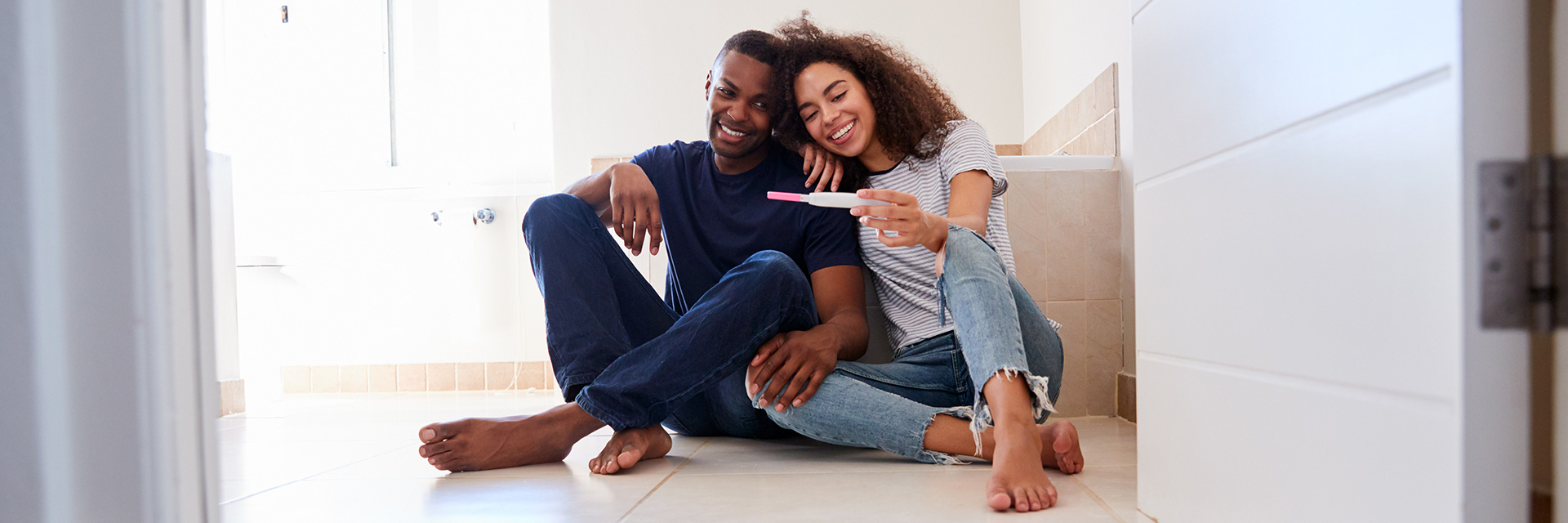When you learn that you’re expecting a baby, you might begin thinking about your pregnancy week by week. Understanding your pregnancy can help you take the best care of you and your baby during the next nine months (and beyond).
If you’re in your first trimester, weeks 1 through 12, be sure to talk with your healthcare provider about beginning prenatal care. Your body will have to work overtime when you’re expecting, so help give it the boost it will need for a healthy pregnancy. While every pregnancy is unique, the American Pregnancy Association offers some ideas of what you can likely expect early on.
Your changing body
Your body goes through some important changes to pave the way for baby. These changes can happen quickly, so get ready. During the first three months of pregnancy, you might experience physical changes and symptoms including:
- Breast tenderness and swelling.
- Morning sickness that can really happen any time of day or night.
- If you don’t lose weight from being nauseated, you may start noticing your clothes fit a little tighter around the waist and legs (there’s no baby bump yet, though).
- The need to go to the bathroom more often.
- Pregnancy hormones slow digestion, so you may have heartburn.
- Fatigue is common.
Your emotional rollercoaster
The first few months of pregnancy can bring with them lots of emotional highs and lows. One day, you may be overjoyed by the thought of baby’s arrival. The next, you are anxious thinking about the changes a baby will bring to your life. If it’s your first child, you may question your readiness for parenthood, the financial toll of adding another human being to your budget and so much more.
Hang in there. You may feel moody for a little while longer, but the rollercoaster of emotions won’t last forever. If you find anxiety creeps in more than is healthy, be sure to share your feelings with your healthcare provider.
At the doctor
Regular visits with your OB/GYN are important to staying healthy throughout pregnancy. Your doctor will perform a number of tests and check for certain milestones over the course of the next nine months. Early visits with your OB/GYN may include:
- Blood Type and Rh Factor Test: A simple blood test, typically done during your first prenatal care visit, will let your healthcare provider know your blood type and Rh factor. The Rh factor—a protein found on red blood cells in most people—is important in pregnancy. If you have don’t have this protein, but your fetus does, it can cause health problems in your baby. Learn more about this and how any resulting problems are treated.
- Ultrasound: Performed at around week 6 may be able to detect baby’s heartbeat. It also can help your doctor set a due date. The time from day 17 to around day 56 is especially vulnerable because that’s when baby is most prone to things that can affect normal growth. The ultrasound is a way for your doctor to watch baby’s developmental progress for any signs of distress.
- Noninvasive Prenatal Screening: A test of your blood to check your baby’s DNA for certain genetic conditions, including Down syndrome. Recommended if you had an earlier pregnancy involving birth defects or after abnormal first trimester screening results (see below). NOT recommended if there’s no risk of birth defects or if you’re pregnant with multiples. Typically given after 10 weeks.
- First Trimester Screening: A blood test and an ultrasound to check for possible birth defects, such as Down syndrome and heart defects. At 11–13 weeks of pregnancy.
- Chorionic villus sampling (CVS): Tiny tissue samples from your placenta are extracted by a needle inserted through your abdominal wall or by a thin tube (catheter) inserted vaginally up through your cervix. The samples, which have the same genetic makeup as your baby, are then tested for genetic abnormalities, such as Down syndrome. At 10–12 weeks.
CVS is an invasive procedure with a small risk of infection or miscarriage. The test is only recommended if your baby has a higher risk of birth defects because you:
- Are 35 or older
- Tested positive in a noninvasive prenatal screening test
- Had an ultrasound that indicated possible abnormalities
- Had a previous pregnancy involving a genetic condition (such as Down syndrome)
- Have a family history of a specific genetic condition
Your developing baby
The first trimester is a time of rapid growth and development for baby-to-be. Although you won’t be able to see some of the changes taking place, your baby’s brain, spinal cord and other major organs will begin to form. Baby’s tiny heart will even begin to beat.
The American Pregnancy Association gives a timeline for some of your baby’s early changes:
- By around week 3, baby’s digestive tract is forming along with his/her brain, spine and heart.
- By week 4, baby has basic blood flow through some very tiny vessels.
- By the end of the first month, your baby is about 1/4 inch long — smaller than a grain of rice.
- By week 6, the formation of the lungs, jaw, nose and palate begin. Baby’s hand and feet buds have structures that will become the fingers and toes.
- By about week 8, everything that’s present in an adult human is also present in your precious little one.
- As the first trimester comes to a close, your baby (known as a fetus now) has grown to about 3 inches in length and weighs around an ounce. There’s lots more growing to come!



